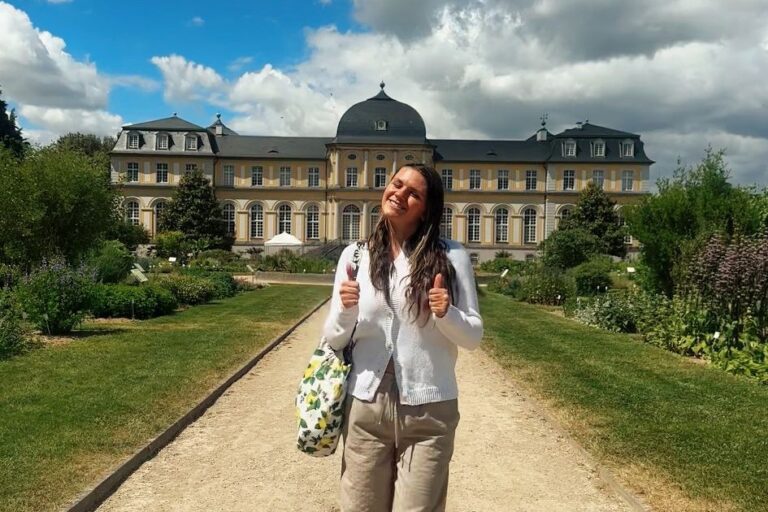Spotlight – Pia Banzhaf
Before I even could read, a page in my children’s encyclopedia brimming with drawings of inventions for the exploration of the deep sea captured my imagination. The image included submersibles of all kinds, the Bathysphere, the diving bell, as well as all manner of diving suits. I remember looking at this image countless times and deciding that–one day–I would become a deep sea diver. What I did not factor in at the time was the water aspect. I was not what we call a “Wasserratte” in German, someone who loves swimming. Quite the contrary in fact. Once I discovered that side of deep sea exploration by the age of eight, I abandoned my early career ambitions.
It took me the rest of my life to realize that the drawing that set my imagination on fire transcended the exploration of the watery world. It was a metaphor for exploration in general, or research as we could call it. Growing up in a plurilingual and -cultural family in, at the time, a sea of a monolingual and –cultural society in Germany, my interests seem to naturally have developed around culture and language. I grew up in Essen, the heart of the Ruhr area, but culturally I lived between my father’s country upbringing in the Eifel region and my mother’s expatriate world under the Eiffel tower. Between all family members we spoke German with an Eifel accent and English, French, Vietnamese, Portuguese, Russian, and Italian. It was in the metro in Paris when I discovered that there were other people like us, that there was a tribe we could belong to, a tribe happily living in the in-between and it appears that I continue to be on the lookout for these interstitial spaces.
During my studies in Germany, where I majored in comparative cultural anthropology of textiles and linguistics, I was introduced to the physiology of language and when–during my graduate studies–I discovered that there was such a thing as cognitive approaches to literature, I dove right in. I am mostly interested in understanding how literature and art achieve their effects. This approach has allowed me to bring my love of literature and my interest in cognitive processes together and even to expand into theatre and performance analysis and practice.
Currently, I am training my search lights onto the cognitive processes involved in the perception of inanimate objects like puppets. Asia and Africa are known for their long tradition in puppet theatre, and while not as old, puppetry arts have a long tradition in Europe, too. Anecdotal evidence even has it that Goethe, who was very fond of puppet theatre, was inspired to explore the Faust material after attending a Dr. Faustus marionette play at the age of nineteen. Germany continues to have its fair share of outstanding, innovative puppetry artists and puppet theatres. Some claim that puppet theatre is experiencing a sort of renaissance. In light of the proliferation of robots, androids, cyborgs, and the posthuman in general, the question of what it means to be human, has come to the fore again and studying puppets is, as odd as it may seem, a productive way of engaging in this question. While this research does not seem to tie into German studies in obvious ways, it is grounded in the knowledge of the field of aesthetics and phenomenology, which were pioneered by German thinkers and I feel lucky to be able to access their writings in the original.
So, to everyone out there, on the fence about studying German, I want to say: “Tauchen Sie ein!” It is going to be an adventure.

